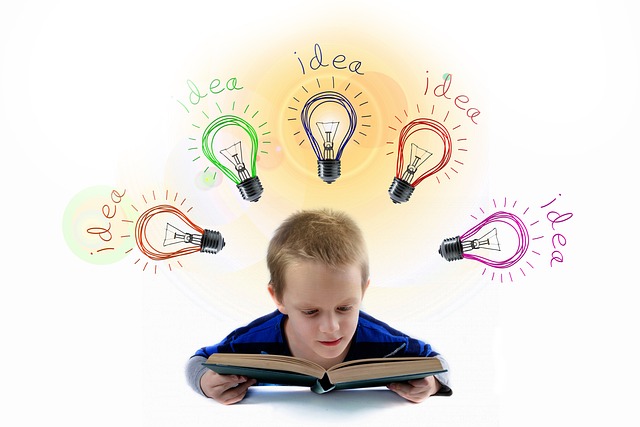The Importance of Emotional Intelligence in Personal Relationships
When we think about meaningful connections in our lives, we often gravitate towards the concept of emotional intelligence (EI). This multifaceted ability can be the key to building and sustaining strong personal relationships. Emotional intelligence involves perceiving, using, understanding, and managing emotions in oneself and others. Realistically, it isn’t just a buzzword used in corporate environments; it plays a monumental role in our personal relationships. As we navigate friendships, family dynamics, or romantic entanglements, understanding emotional intelligence helps us respond to our partner’s needs, and ultimately create a deeper bond. So, let’s dive deep into what emotional intelligence is and how it fundamentally alters the landscape of our personal connections.
Starting with the basics, emotional intelligence encompasses several core competencies. Firstly, there’s self-awareness, which means recognizing your own emotions and their effects on your thoughts and behavior. How often do we find ourselves reacting irrationally during a heated moment without truly understanding why? Self-awareness allows us to take a step back and evaluate the situation, instead of merely reacting. Next, we have self-regulation. This competency empowers us to manage our emotions in healthy ways, especially in situations of conflict. Think about it: wouldn’t it be easier to maintain peace in a relationship when both individuals can regulate their feelings? Moreover, emotional intelligence includes social awareness. This aspect pertains to recognizing the emotions of others and understanding the social dynamics at play within a relationship. Acknowledging how your partner feels often leads to stronger connections, as each person in the relationship feels understood and validated.
Now, let’s explore why these competencies profoundly influence personal relationships. When both individuals in a relationship possess high emotional intelligence, misunderstandings diminish significantly. They communicate openly, leading to a more transparent interaction. Instead of raising their voices or withdrawing into silence, they discuss their emotions and thoughts. For example, if one partner feels neglected, they articulate that feeling without attacking the other’s character. This respectful dialogue reflects a higher level of emotional maturity. When both parties engage in this manner, they ultimately nurture a safe space where the relationship can flourish. Moreover, when both people feel free to express themselves, it cultivates trust. Trust, in turn, forms the backbone of any personal relationship. It’s this cycle of emotional intelligence, communication, and trust that keeps relationships robust and resilient.
Understanding Emotional Triggers
Emotional triggers play a significant role in how we react to situations in our interpersonal relationships. These triggers can stem from past experiences, insecurities, or unresolved conflicts. Understanding what drives you to react in certain ways allows you to manage your responses more effectively. For instance, if someone grew up in a household where confrontation led to anger, they might become defensive during disagreements, even if the situation does not warrant it. Recognizing this pattern is where emotional intelligence comes into play. Instead of reacting impulsively, this awareness encourages them to pause and think critically about their emotions. They can then respond with compassion rather than defensiveness, fostering healthier communication with their partner.
Grasping emotional triggers is not just about managing your own responses; it’s equally vital to understand the triggers of those closest to you. Suppose your partner has a history of feeling abandoned. In that case, they may have heightened sensitivity toward behaviors that seem uncommitted or dismissive. To maintain a supportive environment, you could ensure that you actively communicate and affirm your commitment. By doing so, you acknowledge their feelings, which strengthens the bond between you. This mutual understanding allows couples to not only address conflicts with grace but also to shield each other from unnecessary emotional pain. Trust deepens because each person feels seen and heard, and the relationship thrives on this foundation of emotional honesty.
Building Empathy through Emotional Intelligence
Empathy is an often overlooked yet essential element of emotional intelligence. It allows us to step into another’s shoes and see the world from their perspective. The power of empathy in personal relationships cannot be overstated. When one person in a relationship practices empathy, it opens the door for constructive discussions. Imagine having a heated debate about finances; emotions are likely to run high. However, if both individuals commit to empathizing with each other’s perspectives, they might find common ground more easily. Instead of zeroing in on the numbers, they can explore the feelings behind financial goals, fears, and aspirations. When couples practice empathy, they learn to appreciate each other’s journeys, making them more likely to collaborate than to argue.
Moreover, empathy fosters a sense of belonging. When you share your feelings and your partner responds with understanding, it creates emotional safety. It’s like building a sanctuary where both individuals feel secure and valued. This level of emotional intimacy invites vulnerability, which is essential for any deep relationship. Of course, it’s not always easy. Some individuals may struggle with empathy due to their emotional capacity or past experiences that have made them more guarded. However, through conscious effort and mindfulness, anyone can improve their empathetic abilities. With practice, empathy becomes second nature, solidifying interpersonal connections and deepening existing relationships.
Conflict Resolution and Emotional Intelligence
Conflict is inevitable in any relationship. Disagreements arise because we all come from different backgrounds and hold unique perspectives. Yet, how we manage conflict makes all the difference. This is where emotional intelligence shines. High EI allows individuals to approach conflict with a mindset geared towards resolution rather than victory. When faced with a disagreement, emotionally intelligent individuals can pause and assess the situation without letting their feelings cloud their judgment. They can articulate their emotions while also considering their partner’s viewpoint. For instance, saying, “I feel hurt when you dismiss my ideas,” is far more productive than pointing fingers with accusatory language.
Utilizing emotional intelligence during conflicts also involves recognizing physiological responses. Have you ever noticed your heart racing during an argument? If you can identify these physical cues, it serves as a critical moment for self-regulation. Stepping back to cool off or taking a few deep breaths can de-escalate tensions and create space for more rational discussions. When both partners commit to this process, they can tackle conflicts collaboratively. Each person can express their thoughts while also listening to understand, paving the way for mutual growth. After resolving conflicts with emotional intelligence, not only does the relationship grow stronger, but it develops a more profound respect for each other’s viewpoints.
The Journey of Personal Development through Emotional Intelligence
Investing in emotional intelligence is a journey of personal development. It doesn’t happen overnight; it requires time, self-reflection, and dedication. Engaging in this process can lead to remarkable changes within yourself and your relationships. Understanding your emotions and how to express them leads to healthier interactions, not just with partners but with family and friends as well. Emotional intelligence fosters better communication, which is essential in every social sphere. Moreover, working on emotional intelligence can instill confidence. When you learn to manage your feelings and imitate healthy responses, it transforms how you perceive conflict and adversity.
Additionally, enhancing emotional intelligence contributes to mental well-being. Research suggests that individuals with high EI experience lower stress levels and greater emotional maturity. They can navigate life’s ups and downs with grace rather than chaos. This resilience and emotional wisdom also positively affect personal relationships. When you’re more grounded and confident within yourself, you are better equipped to support those you care about. This creates a ripple effect. Each person you positively influence can also pay it forward. Ultimately, this journey of emotional intelligence and personal development can redefine not just your personal relationships, but the broader community in which you live.
Frequently Asked Questions
1. What exactly is emotional intelligence?
Emotional intelligence (EI) is the ability to recognize, understand, and manage our own emotions while also recognizing, understanding, and influencing the emotions of others. It involves skills like self-awareness, self-regulation, motivation, empathy, and social skills.
2. How can emotional intelligence improve my personal relationships?
Emotional intelligence enhances communication, reduces conflicts, and builds trust. By being aware of your emotions and those of others, you can respond more thoughtfully to situations, leading to healthier and more fulfilling relationships.
3. Can emotional intelligence be developed over time?
Yes, emotional intelligence can be improved through practice and self-reflection. Engaging in mindfulness, focusing on empathy, and learning to manage your emotional responses can lead to significant growth in this area.
4. What roles do empathy and self-awareness play in emotional intelligence?
Empathy allows you to understand and share the feelings of others, fostering deeper connections. Self-awareness helps you recognize your own emotional triggers and patterns, enabling you to manage your reactions in a healthier way.
5. Is emotional intelligence a necessary skill for all relationships?
While it may not seem necessary at first, emotional intelligence is a valuable skill in all types of relationships, whether they are romantic, familial, or platonic. It ultimately contributes to better understanding, communication, and conflict resolution.



